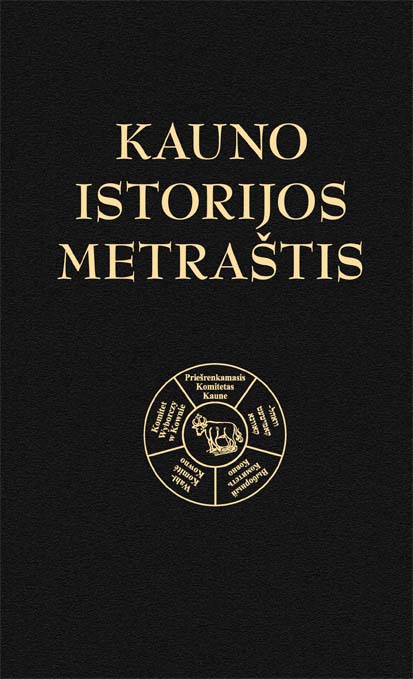„Nacionalizmo manifestacijos“ ir „tarybinių tautų draugystės“ ideologema. Kaunas 1944–1953 m.
“Manifestations of Nationalism” And the Ideology of “Friendship of Soviet Peoples”. Kaunas, 1944–1953
Author(s): Vladas SirutavičiusSubject(s): Political history, Nationalism Studies, WW II and following years (1940 - 1949), Post-War period (1950 - 1989), History of Communism
Published by: Vytauto Didžiojo Universitetas
Keywords: Letters to the government; Stalinism; Nationalism; Friendship of Soviet nations; Communist party of Lithuania;
Summary/Abstract: This article discusses the relations between the Lithuanian citizens of Kaunas and the Russians newcomers, who came to the city after the war. The research is based on a specific archival source – letters to the government – that has so far been little used in our historiography. In letters/complaints addressed to the leaders of the Soviet Union and Soviet Lithuania, the newcomers (Moscow-deployed party figures and demobilized soldiers) often accused Lithuanians – managers, superiors and local party bosses – of bourgeois nationalism. After discussing more typical complaints, the article draws several conclusions: first, tensions in the party apparatus between Lithuanians and newcomers were stimulated by the desire of newcomers to establish themselves in the party nomenclature by removing an undesired Lithuanian competitors. The accusations of nationalism were to help compromise party members of the titular nation. Second, accusations of nationalism were fueled by the different perceptions of Soviet nationality policy. The policy emphasized the need to nominate politically credible cadres “of local nationality”. For the newcomers, the policy of promoting “of national cadres” was not in line with the publicly declared principle of “friendship of the peoples” and of “special role of Russian people in building socialist society”. Without understanding the peculiarities of national policy in Soviet Lithuania, the newcomers often motivated the practice of “promoting national cadres” with Lithuanian bourgeois nationalism. Third, despite the “proletarian internationalism” and political-ideological commonalities, there were significant cultural differences between the newcomers-party members and Lithuanians. Lithuanian managers, superiors and local party bosses considered themselves the hosts of the city, and the newcomers as outlanders. For these the “order” (dominant ethnoculture) that existed in Kaunas not only seemed different from the one that existed back in Soviet Russia, but also alien. It is no coincidence that a large number of newcomers felt that the city “lacked” Soviet power and that it “flourished with nationalism”.
Journal: Kauno istorijos metraštis
- Issue Year: 2020
- Issue No: 18
- Page Range: 91-106
- Page Count: 16
- Language: Lithuanian

